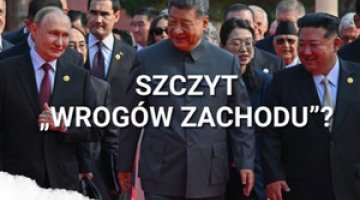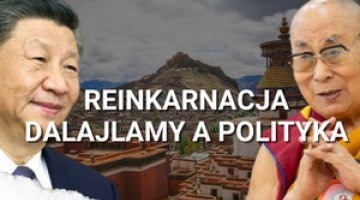Xi Jinping’s third term: preparing the state for times of unrest
The 13th term of the National People's Congress (NPC), the parliament of the People's Republic of China (PRC), began in 2018, It’s fifth and final session took place from 5–13 March. It was accompanied, in line with established practice, by the work of the National Committee of the Chinese People's Political Consultative Conference (CPPCC). The session saw the election of the highest state authorities for the next five years, including the approval of Xi Jinping’s third term as the Chairman of the PRC. It also restructured the state apparatus in line with the authorities’ current priorities. It focused on issues of financial stability, technological competition and military budget growth.
The NPC session was preceded by the Second Plenum of the 20th Central Committee of the Chinese Communist Party (CCP) on 26–28 February. There, a list of candidates for top state posts was drawn up for acceptance by the NPC and some of the State Council’s proposals for institutional change were adopted and submitted to parliament for formal adoption. The deliberations of the NPC do not end the reshuffle process or the structural changes in the central authorities of the party and the state. Further reshuffles and appointments are expected to be unveiled in the coming weeks, when they will be approved by the NPC Standing Committee (SC) or the State Council. A reform of the CCP’s bodies is also expected to take place during the same period. Preliminary proposals were contained in a joint document of the CCP’s Central Committee and the State Council published on March 16.
Commentary
- The annual session of the NPC mainly plays a propaganda role and creates the appearance of parliamentarism in the PRC. It is selected through a complex process of multi-stage appointments controlled by the party apparatus. Formally, it is the highest authority in the state, but never in its history has it rejected personnel or legislative proposals put forward by the party leadership. The CPPCC is a non-political advisory body, and its main task is to simulate consultation with social circles which in theory function outside the CCP, but which in practice are supervised by it. Personnel decisions and changes to state administration structures made at the last session of the NPC are primarily intended to align the organisation and staffing of state organs with the new configuration of the party’s top leadership, which emerged at the 20th CCP Congress last October (see ‘China after the 20th CCP Congress: a new stage in Xi Jinping’s revolution’).
- The course of the NPC’s deliberations confirmed the dominance of Xi Jinping’s faction in the party-state apparatus. This is evidenced not only by his receiving a third term as the Chairman of the PRC, but especially by the composition of the highest state bodies (see Table 1). It reflects the supreme position of those with personal ties to Xi Jinping in the CCP authorities. Han Zheng, a vice premier from 2018 to 2023, has been appointed the vice-Chairman of the PRC. He is one of Xi Jinping’s close associates and does not himself hold political rank in the CCP. As a result, he cannot be a serious candidate for the position of the Chairman of the PRC or the general secretary of the CCP, indicating that Xi Jinping does not plan to retire politically after his third term. Nominally second in the party hierarchy and constitutional order is Premier Li Qiang. Unlike his predecessor Li Keqiang, who is linked to a rival group of activists originating from the Communist Youth League, he is fully dependent on the general secretary and has no political independence. The same is true of the First (Executive) Vice Premier Ding Xuexiang – previously (2017–2023) Director of the General Office of the Central Committee of the CCP and Head of the Office of the General Secretary of the Central Committee of the CCP. Zhao Leji, third in the party hierarchy, became the Chairman of the NPC SC, i.e., the chairman of parliament and formally the third most powerful person in the state. He is the highest-ranking person in the party-state apparatus who, despite his loyalty to the general secretary, does not owe his career to him and has his own political background in the CCP.
- The current reshaping of the party-state structure comes after ten years of rule by Xi Jinping, who effectively shaped it in line with his vision for two terms. For this reason, the changes being implemented at this year’s NPC are more in the nature of a routine adjustment to bring them in line with the new challenges facing China (see Table 2). While government reshuffles have been implemented cyclically since 1978, they have created a new quality since Xi Jinping took the helm in 2012–2013. It involves a reversal of the CCP’s process of the institutionalisation of governance, i.e. the transfer of real power from the party to the organs of state (which had been underway since the late 1970s). Currently, in line with the informal phrase ‘the party eats the state’, the CCP is not only exercising political leadership, but is also again taking over executive and supervisory roles from state structures, leaving them with only an administrative function (see ‘High on the party, low on the state. A quantum leap in the process of China’s reconstruction’). Because of the reduction in the importance of the central administration, a decision was taken to reduce the central administration’s workforce by 5%.
- This year’s NPC session also provides a platform to present the PRC leadership’s key policy directions and to adapt the country’s structures to the challenges ahead. In their speeches, the dignitaries strongly emphasised three key issues. The first was the acknowledgement of economic problems. These mainly related to the exhaustion of the development model and were exacerbated by several years of a zero-COVID strategy. This has resulted in 5% GDP growth planned for 2023. This is below the 9% recorded on average between 1989 and 2022, and the over 6% in the last decade. In doing so, the new premier has assured private entrepreneurs that they will be able to continue to operate on a level playing field with state-owned companies, in an attempt to address growing business concerns that China is moving away from elements of the free-market economy first introduced in the 1980s. The second dominant theme is the need for a profound overhaul of the management and control of the financial and technology sectors. The third is the further expansion of the armed forces, which Xi Jinping has called ‘the Great Wall of Steel.’ This involves increasing the defence budget by 7.2%, well above the announced GDP growth, which for years officially setting the bar for raising army funding. This is a response to Beijing’s intensifying rivalry with Washington.
- The biggest structural changes within state bodies which were conducted during the NPC’s deliberations concern the financial sector and the development of innovative technologies more broadly – two areas that the CCP leadership believes require increased oversight. The economy’s indebtedness, the speculative real estate bubble and misguided infrastructure investments are placing increasing strain on China’s financial system. The newly established supervisory body, the National Administration of Financial Supervision, is expected to make it easier for the government to control it at a time of expected severe difficulties. In turn, the growing rivalry with the United States, which is cutting off China’s access to many advanced technologies, requires the mobilisation of resources and actions by both the state and the private sector directed at developing domestic solutions. The CCP’s long-term goal is above all to gain technological independence, primarily in the semiconductor industry, and to build a system of technological norms and standards alternative to the West’s. The result is the strengthening of the Ministry of Industry and Information Technology and the Ministry of Human Resources and Social Security. As announced on 16 March, the Financial Commission of the Central Committee, the Financial Work Commission of the Central Committee (the distinction of powers between them is not clear) and the Commission for Science and Technology of the Central Committee are to be established simultaneously to oversee the work of these bodies on behalf of the party. In addition, the Social Work Department of the Central Committee and the Hong Kong and Macau Work Office of the Central Committee are to be established.
Table 1. Key personnel changes

* The composition of the CMC of the PRC mirrors the staffing of the CMS of the Central Committee of the CCP.
Table 2. Institutional changes









